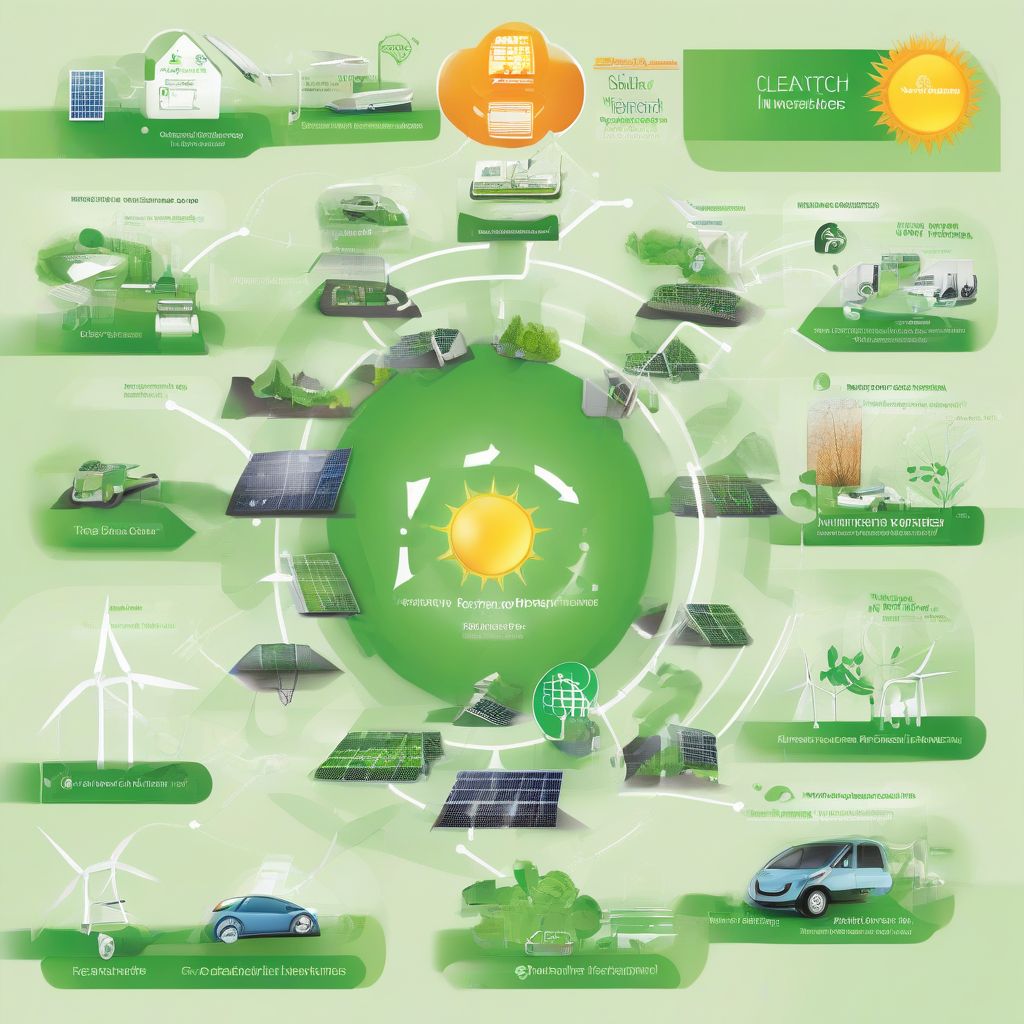Imagine a world where industrial processes are not only profitable but also planet-friendly. This isn’t a utopian dream; it’s the reality cleantech startups are building, brick by sustainable brick. These innovative companies are challenging the status quo, disrupting traditional industries, and paving the way for a greener future. From energy to agriculture, transportation to manufacturing, no sector is immune to the cleantech revolution. So, how exactly are these startups changing the game? Let’s dive in.
Reimagining Energy Production and Consumption
Cleantech startups are at the forefront of the renewable energy revolution. They’re developing cutting-edge technologies that make solar, wind, and geothermal energy more efficient and affordable than ever before. Companies like Tesla, with its focus on electric vehicles and energy storage, are prime examples of this disruption. They are not just selling products; they are changing consumer behavior and challenging the dominance of fossil fuels.
Solar Power Gets Smarter
Startups are making solar power more accessible to the masses. Innovations in solar panel technology, including flexible solar cells and improved energy storage solutions, are driving down costs and increasing efficiency. This allows homeowners and businesses to generate their own clean energy, reducing their reliance on traditional power grids.
Wind Energy Takes Flight
Wind energy is another area ripe for disruption. Cleantech startups are developing advanced wind turbine designs and exploring new locations for wind farms, both onshore and offshore. They’re also working on smart grid technologies that can integrate intermittent renewable energy sources seamlessly into the existing power infrastructure.
Revolutionizing Transportation
The transportation sector, a major contributor to greenhouse gas emissions, is undergoing a significant transformation thanks to cleantech startups. Electric vehicles (EVs), autonomous driving technology, and ride-sharing platforms are changing the way we move.
Electric Vehicles Charge Ahead
Companies like Rivian and Lucid are challenging established automakers with their innovative EV designs and technologies. These startups are not just building cars; they’re building a complete ecosystem around electric mobility, including charging infrastructure and battery technology.
Autonomous Driving Navigates the Future
Autonomous driving technology has the potential to revolutionize transportation. Startups are developing self-driving cars, trucks, and even delivery robots, promising to improve safety, reduce congestion, and increase efficiency.
Transforming Agriculture and Food Production
Cleantech startups are tackling the environmental challenges of agriculture. They’re developing sustainable farming practices, reducing food waste, and creating alternative protein sources.
Precision Agriculture Takes Root
Precision agriculture utilizes technology to optimize crop yields and reduce resource consumption. Startups are developing sensors, drones, and data analytics platforms that provide farmers with real-time insights into their fields, enabling them to make data-driven decisions about irrigation, fertilization, and pest control.
Alternative Proteins Cultivate Change
The demand for sustainable protein sources is growing. Cleantech startups are developing plant-based meat alternatives, lab-grown meat, and insect-based protein, offering consumers more environmentally friendly choices.
Reinventing Manufacturing and Industrial Processes
Cleantech startups are transforming manufacturing by developing cleaner, more efficient industrial processes. They’re also focusing on circular economy principles, aiming to minimize waste and maximize resource utilization.
Green Chemistry Catalyzes Change
Green chemistry focuses on designing chemical products and processes that minimize or eliminate the use and generation of hazardous substances. Cleantech startups are developing innovative green chemistry solutions for a wide range of industries, from textiles to pharmaceuticals.
Circular Economy Closes the Loop
The circular economy aims to eliminate waste and pollution by keeping products and materials in use for as long as possible. Cleantech startups are developing innovative recycling technologies, creating closed-loop systems for material recovery, and designing products for disassembly and reuse.
 Cleantech Disruption
Cleantech Disruption
Conclusion
The cleantech revolution is not just a trend; it’s a fundamental shift in how we approach business and build a sustainable future. Cleantech startups are driving this transformation, disrupting traditional industries with innovative technologies and business models. From renewable energy to sustainable agriculture, these companies are creating a cleaner, greener, and more prosperous future for all. While challenges remain, the momentum is undeniable. By embracing innovation and collaboration, we can accelerate the transition to a sustainable economy and create a world where both profit and planet thrive. What are your thoughts on the cleantech revolution? Share your comments below and let’s continue the conversation.



